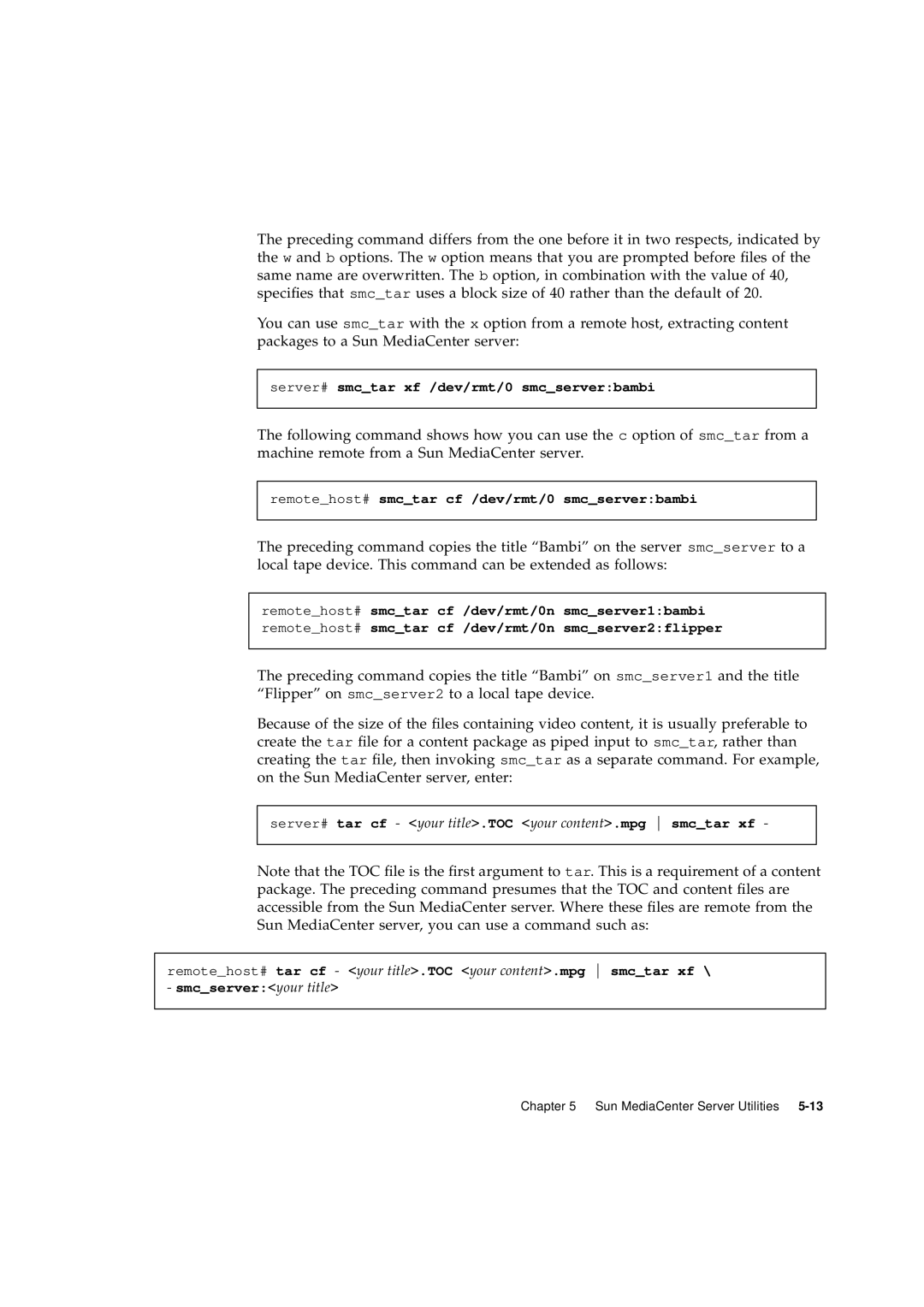
The preceding command differs from the one before it in two respects, indicated by the w and b options. The w option means that you are prompted before files of the same name are overwritten. The b option, in combination with the value of 40, specifies that smc_tar uses a block size of 40 rather than the default of 20.
You can use smc_tar with the x option from a remote host, extracting content packages to a Sun MediaCenter server:
server# smc_tar xf /dev/rmt/0 smc_server:bambi
The following command shows how you can use the c option of smc_tar from a machine remote from a Sun MediaCenter server.
remote_host# smc_tar cf /dev/rmt/0 smc_server:bambi
The preceding command copies the title “Bambi” on the server smc_server to a local tape device. This command can be extended as follows:
remote_host# smc_tar cf /dev/rmt/0n smc_server1:bambi remote_host# smc_tar cf /dev/rmt/0n smc_server2:flipper
The preceding command copies the title “Bambi” on smc_server1 and the title “Flipper” on smc_server2 to a local tape device.
Because of the size of the files containing video content, it is usually preferable to create the tar file for a content package as piped input to smc_tar, rather than creating the tar file, then invoking smc_tar as a separate command. For example, on the Sun MediaCenter server, enter:
server# tar cf - <your title>.TOC <your content>.mpg smc_tar xf -
Note that the TOC file is the first argument to tar. This is a requirement of a content package. The preceding command presumes that the TOC and content files are accessible from the Sun MediaCenter server. Where these files are remote from the Sun MediaCenter server, you can use a command such as:
remote_host# tar cf - <your title>.TOC <your content>.mpg smc_tar xf \
-smc_server:<your title>
Chapter 5 Sun MediaCenter Server Utilities
